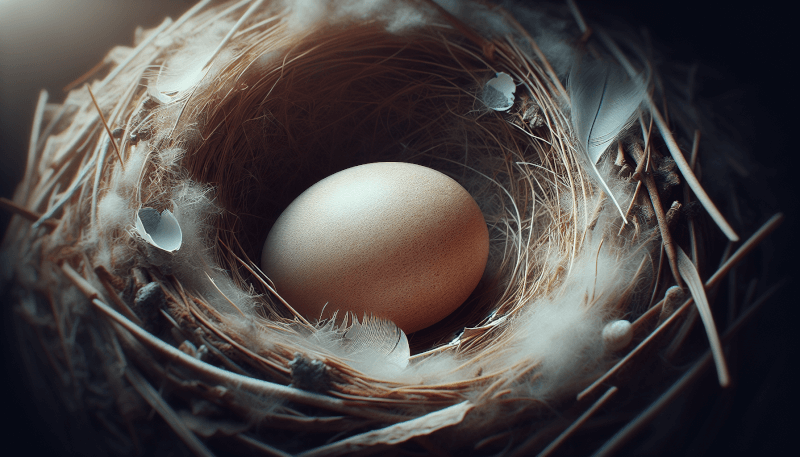Birds are fascinating creatures that bring joy and beauty to our lives. Whether you own a pet bird or are simply interested in avian reproductive health, it’s important to understand the key considerations for the well-being of female birds. From providing a balanced diet to ensuring a suitable nesting environment, this article explores essential factors that can contribute to the overall reproductive health of our feathered friends. So, let’s embark on a journey to discover the secrets to avian female reproductive health!
Age and Development
Physiological Development
Understanding the physiological development of avian females is crucial for ensuring their reproductive health. Avian females undergo a series of physiological changes as they mature, which ultimately prepares them for the process of reproduction. These changes include the development of their reproductive organs, such as the ovaries and oviducts, as well as the production of hormones necessary for successful breeding.
Age of Sexual Maturity
The age at which avian females reach sexual maturity varies among different species. While some birds may become sexually mature at just a few months old, others may not reach maturity until several years have passed. It is important to consider this age difference when planning breeding programs or assessing the reproductive health of avian females. Delayed sexual maturity may indicate underlying health issues or nutrient deficiencies that need to be addressed.
Reproductive Aging
Similar to humans, avian females experience reproductive aging as they get older. As they reach their senior years, the quality and quantity of eggs they produce may decline. This decline in reproductive ability should be taken into account when managing avian breeding programs or assessing the suitability of older females for reproduction. Regular monitoring and proper care are essential to ensure the well-being of aging avian females and to optimize their reproductive success.
Nutrition and Diet
Balanced Diet for Reproductive Health
Maintaining a balanced diet is crucial for the overall health and reproductive success of avian females. A diet rich in essential nutrients, vitamins, and minerals is necessary to support the development and functioning of their reproductive organs. Providing a variety of high-quality seeds, fruits, vegetables, and protein sources such as insects or pellets can help ensure that avian females receive the necessary nutrients for optimal reproductive health.
Vitamin and Mineral Requirements
Specific vitamins and minerals play important roles in avian female reproductive health. For example, vitamin E is essential for the health and viability of eggs, while calcium is necessary for strong eggshells. An adequate supply of vitamin D is also crucial for proper calcium absorption. It is important to understand the specific nutrient requirements of different bird species to provide a well-rounded diet that meets their reproductive needs.
Impact of Malnutrition on Reproduction
Malnutrition can have severe consequences on avian female reproductive health. Insufficient intake of essential nutrients can result in the production of low-quality eggs, decreased fertility, or even complete reproductive failure. It is crucial to prevent malnutrition by providing a well-balanced diet and regularly monitoring the nutritional status of avian females. Consulting with avian veterinarians or avian nutrition experts can help ensure optimal nutrition for reproductive success.

Environmental Factors
Temperature and Lighting
The surrounding temperature and lighting conditions can significantly impact avian female reproductive health. Extreme temperatures, either too hot or too cold, can disrupt egg development and fertility. Providing a stable and controlled environment within the avian habitat is essential to prevent adverse effects on reproductive processes. Additionally, proper lighting, including exposure to natural light or regulated artificial lighting, can help regulate the reproductive cycles of avian females.
Nesting Conditions
Creating suitable nesting conditions is vital for encouraging successful breeding in avian females. Providing appropriate nesting materials, such as straw or wood shavings, allows females to construct secure and comfortable nests for egg-laying. Proper nesting boxes or structures should also be provided to ensure privacy and protection during the incubation period. Adequate nest hygiene practices, including regular cleaning, help prevent the spread of diseases and ensure the overall well-being of avian females and their offspring.
Aviary Design and Layout
The design and layout of the aviary or breeding enclosure play a crucial role in supporting avian female reproductive health. The size of the enclosure should allow for natural foraging and exercise activities, promoting physical and mental well-being. Ensuring adequate space for nesting areas, perches, and environmental enrichment enhances the natural behaviors of avian females, contributing to their overall reproductive health. Proper ventilation and temperature control within the enclosure are also important considerations to minimize stress and optimize reproductive success.
Reproductive Behavior
Courtship and Pair Bonding
Avian females engage in courtship behaviors to establish pair bonds with males, a necessary step towards successful reproduction. Courtship behaviors can vary significantly among different bird species, but they often involve displays, vocalizations, and physical interactions. Providing opportunities for pair bonding and courtship behaviors within the aviary or breeding enclosure is essential for stimulating avian female reproductive behavior and promoting successful breeding.
Nest Building and Egg Laying
Once a pair bond is established, avian females start preparing nests for egg-laying. They meticulously choose and arrange nesting materials to create a safe and suitable environment for their eggs. Observing nesting behaviors and providing appropriate nesting materials within the enclosure is crucial for supporting avian female reproductive health. Adequate nutrition and the availability of calcium-rich food sources are also essential for the production of healthy eggs and strong eggshells.
Incubation and Parental Care
After egg-laying, avian females often take on the responsibility of incubating the eggs. Maintaining the optimal temperature and humidity within the nesting area is critical for successful embryo development. Avian females exhibit remarkable commitment and dedication to the incubation process, regularly rotating the eggs and protecting them from potential threats. Once the eggs hatch, avian females continue to provide parental care, ensuring the well-being and survival of their offspring.

Hormonal Health
Endocrine System of Avian Females
The endocrine system plays a crucial role in regulating the reproductive processes of avian females. Key hormones, such as estrogen, progesterone, and follicle-stimulating hormone, are responsible for controlling the menstrual cycle, egg development, and ovulation. Understanding the intricacies of avian female endocrine systems is important for identifying hormonal imbalances and ensuring optimal reproductive health.
Hormonal Regulation of Reproduction
Hormonal regulation is essential for the successful initiation and progression of avian female reproduction. Hormones released by the hypothalamus and pituitary gland stimulate the production and release of follicles from the ovary, which then develop into mature eggs. Timing and synchronization of hormonal events are crucial for successful breeding. Monitoring hormone levels and consulting with avian veterinarians can help identify any imbalances or disruptions in the hormonal regulation of reproduction.
Hormonal Disorders and Infertility
Hormonal disorders can significantly impact avian female reproductive health and may lead to infertility. Conditions such as hypothyroidism, polycystic ovary syndrome, or hormonal imbalances can disrupt the normal functioning of the reproductive system. Identifying and addressing hormonal disorders in a timely manner is essential for maintaining the reproductive health and fertility of avian females. Regular veterinary check-ups and hormone level monitoring can aid in the early detection and management of these disorders.
Reproductive Diseases
Egg Binding
Egg binding is a potentially life-threatening condition that occurs when an avian female is unable to pass an egg. It can result from various factors, including malnutrition, physical abnormalities, or hormone imbalances. Egg binding requires immediate veterinary attention to prevent complications and ensure the well-being of the avian female. Proper nutrition, regular exercise, and maintaining the ideal body condition can help reduce the risk of egg binding.
Ovarian and Uterine Tumors
Avian females can develop ovarian and uterine tumors, which can interfere with their reproductive health. These tumors may cause abnormal egg production, hormonal imbalances, or even reproductive organ dysfunction. Regular veterinary check-ups, including ultrasounds or X-rays, can help identify the presence of tumors and the appropriate course of treatment. In some cases, surgical intervention may be necessary to remove the tumors and ensure the reproductive health of avian females.
Reproductive Tract Infections
Reproductive tract infections can significantly impact avian female reproductive health and fertility. Bacterial, viral, or fungal infections can occur in the ovaries, oviduct, or uterus, leading to reduced egg quality, infertility, or even systemic illness. Regular monitoring for signs of infection, such as abnormal vaginal discharge or swelling, is crucial for early detection and treatment. Antibiotics or antifungal medications prescribed by avian veterinarians can help clear the infection and restore reproductive health.

Breeding Management
Pairing and Compatibility
Choosing suitable breeding pairs is essential for successful reproduction in avian females. Factors such as genetic compatibility, age, temperament, and experience should be considered when pairing birds. Compatibility between the male and female birds can significantly impact breeding success, as incompatible pairs may exhibit aggression, fail to mate, or have difficulties raising offspring. Careful observation and assessment of bird behavior and interactions can aid in selecting suitable pairs for optimal reproductive outcomes.
Breeding Season Control
Controlling the breeding season is important for managing avian female reproductive health and optimizing breeding success. Some bird species have specific breeding seasons dictated by natural factors such as daylight hours or weather conditions. However, in captivity, breeders may manipulate environmental conditions to control breeding cycles. Adjusting photoperiods, temperature, or providing nesting cues can help regulate the breeding season and prevent continuous breeding, which can lead to reproductive exhaustion or health issues.
Artificial Insemination and Genetic Diversity
Artificial insemination can be a valuable tool for managing avian female reproductive health, especially when natural breeding is not feasible or to increase genetic diversity. This technique allows breeders to selectively choose males with desirable traits to father offspring while ensuring the female’s health and welfare. Artificial insemination also provides an opportunity to preserve and propagate rare or endangered bird species. Proper training, hygiene, and coordination with avian veterinarians are crucial for successful artificial insemination procedures.
Reproductive Health Monitoring
Regular Health Checks
Regular health checks are essential for monitoring the reproductive health of avian females. Routine physical examinations, including detailed feather, skin, and beak assessments, can help identify any signs of illness or reproductive abnormalities. Blood tests, fecal examinations, or imaging techniques such as ultrasounds can provide further insights into the overall health status of avian females. By detecting potential issues early, appropriate interventions can be implemented to ensure optimal reproductive health.
Fertility Assessment
Assessing fertility is a critical component of monitoring avian female reproductive health. Various methods, such as examining egg quality, tracking mating behavior, or using non-invasive imaging techniques, can help determine the fertility status of avian females. Fertility assessments aid in assessing the success of breeding programs and identifying any potential reproductive issues that may require attention. This information can guide breeding management decisions and help improve overall reproductive outcomes.
Early Detection of Reproductive Issues
Early detection of reproductive issues is vital for maintaining avian female reproductive health and facilitating timely interventions. Regular observation of egg-laying patterns, eggshell quality, or signs of discomfort during mating or nesting can alert breeders to potential problems. Prompt veterinary attention and appropriate treatments, such as dietary changes, hormonal therapy, or surgical interventions, can help address reproductive issues before they escalate and negatively impact avian females’ overall well-being.

Reproductive Technology
Egg and Sperm Preservation
Preserving avian eggs and sperm can be valuable for avian breeding programs and conservation efforts. Cryopreservation techniques, such as freezing or vitrification, can be used to store genetic material, ensuring its availability for future use. Preserving genetic diversity through egg and sperm preservation can play a crucial role in maintaining healthy populations, especially for rare or endangered bird species. Proper protocols and expertise in reproductive technologies are necessary for successful preservation procedures.
Embryo Transfer
Embryo transfer allows avian embryos to be moved from one female to another, providing opportunities to optimize breeding success and preserve valuable genetic traits. This technique is particularly useful when a female is unable to properly incubate or rear her own offspring. Embryo transfer can also aid in fostering inter-species or intergeneric breeding. Ensuring proper timing, handling, and expertise in avian reproductive technologies are essential for successful embryo transfer procedures.
Genetic Manipulation Techniques
Genetic manipulation techniques offer potential avenues for improving avian reproductive health and advancing avian breeding programs. Genetic engineering, gene editing, or selective breeding can be employed to enhance desired traits, such as disease resistance or reproductive performance. However, ethical considerations and thorough risk assessments must accompany any genetic manipulation approaches to safeguard avian welfare and maintain genetic diversity.
Human Intervention and Conservation
Captive Breeding Programs
Captive breeding programs play a vital role in the conservation of avian species, especially those facing habitat loss, endangerment, or extinction. These programs aim to establish and maintain sustainable captive populations for reintroduction into the wild or to act as safety nets for endangered bird species. Close collaboration between aviculturists, geneticists, and conservation organizations is necessary to ensure the success of captive breeding programs and the long-term survival of avian species.
Reproductive Health in Wild Populations
Monitoring reproductive health in wild bird populations is crucial for understanding population dynamics, identifying potential threats, and implementing conservation measures. Scientists and researchers study breeding behaviors, egg viability, and the impact of environmental factors on reproductive success to inform conservation efforts. With this knowledge, conservationists can implement targeted actions to protect avian breeding habitats, mitigate threats, and ensure the sustainability of wild populations.
Aviculture and Conservation Efforts
Aviculture, the practice of keeping and breeding birds in captivity, provides valuable opportunities for education, research, and conservation. Aviculturists play a critical role in maintaining genetic diversity through selective breeding, participating in captive breeding programs, or collaborating with conservation initiatives. Sharing knowledge, promoting responsible aviculture practices, and engaging in public outreach efforts can raise awareness about the importance of avian conservation and foster a greater understanding and appreciation for these remarkable creatures.
In conclusion, avian female reproductive health is a multifaceted topic that encompasses various factors, from age and development to environmental considerations, hormonal health, and disease management. By understanding and addressing these key considerations, aviculturists, breeders, and conservationists can contribute to the well-being and sustainability of avian populations, both in captivity and in the wild. Regular monitoring, proper nutrition, and early intervention are essential elements in promoting successful breeding programs and ensuring the long-term viability of avian species.



